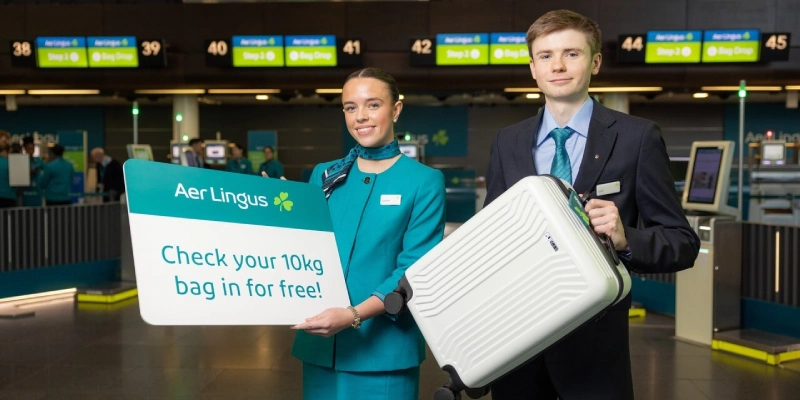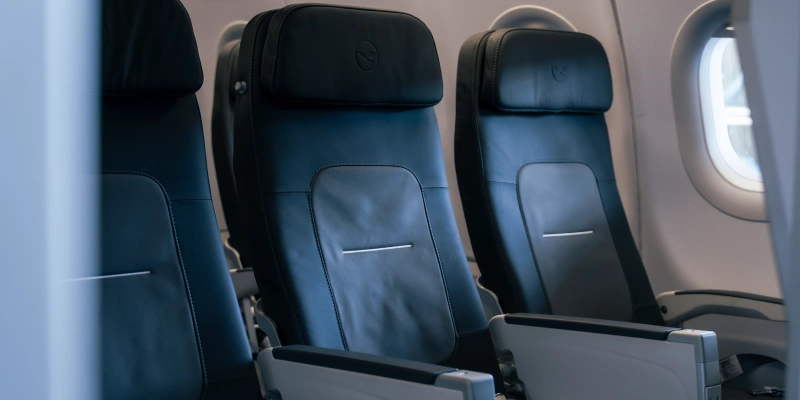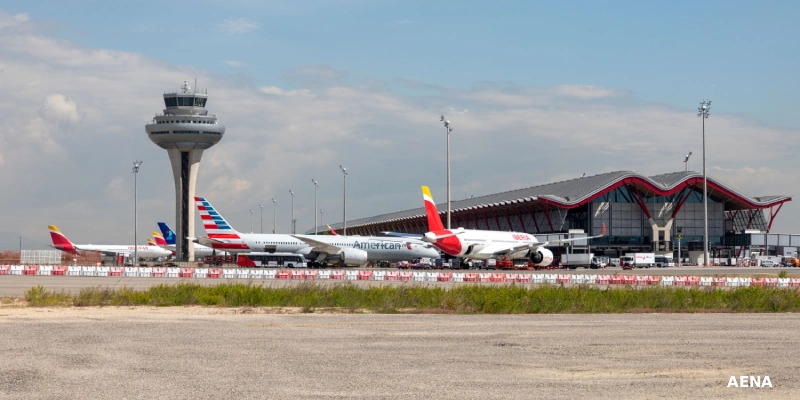The spinal cord connects the brain to the nerves in most parts of the body, and this allows the brain to send messages to the rest of the body, thus facilitating communication. This connection is essential for the proper functioning of the human body, and together with the brain, forms what we know as the central nervous system. This analogy is the best description to understand how artificial intelligence (AI) will work in aviation.
It is clear that artificial intelligence (AI) is poised to become a revolutionary catalyst in a number of industries, and the aviation sector is no exception, as this technology is driving its transformation. Its strategic application is not only changing the way airlines manage their operations, it is also significantly improving the user experience and safety in aviation.
A good example of how AI-powered systems help aviation companies reduce their overall costs by optimizing their fleets and processes are Swiss International Air Lines and Lufthansa. According to reports, these airlines have achieved outstanding results by implementing artificial intelligence in their respective operations.
Swiss International Air Lines, for example, achieved savings of US$5.4 million in 2022, experiencing an increase in efficiency optimization on more than 50% of its flights. Lufthansa, meanwhile, significantly improved the reduction of flight delays and cancellations at Zurich Airport, thanks to better wind pattern prediction, which achieved a 40% increase in accuracy.
“The ability of artificial intelligence to analyze large data sets in real time, predict patterns and make informed decisions is leading airline companies into a new era of efficiency and operational performance. That’s why at enITma we have developed different resources in this regard. Adopting AI is not just about using one more technology in the airline industry, but a tool for competitiveness and ensuring long-term success,” says Enrique Mendoza Arce, CEO of enITma.
What does the use of artificial intelligence in aviation refer to?
In simple terms, AI refers to the ability of machines to perform tasks that normally require human intelligence. According to enITma, a software company that provides services to Latin America’s largest airlines, the use of artificial intelligence in aviation considers the application of advanced algorithms and machine learning systems to perform tasks that would normally require human intervention.
→ Airbus and partners pave the way for hydrogen aviation in Sweden and Norway
Under this concept, an example of this technology in the airline industry is the implementation of check-in to improve passenger security by optimizing access to the aircraft; prior to the flight, passenger information is known and having passed through security filters at the airport, it is no longer necessary to present a boarding pass, but through facial recognition it is possible to access the flight faster and without errors.
Other AI applications are used in the finance area for revenue reconciliation, and in operations for aircraft weight and balance or baggage handling. Also, runway traffic optimization, delay reduction and flight monitoring are some of the innovative technologies that enITma delivers, contributing to a complete transformation in the way airlines manage their operations.
How artificial intelligence is permeating the aviation industry
To get a clearer picture of how this software technology is transforming the airline industry, enITma, a company with a full range of technologies specialized in the airline industry, points out some of the main applications in which AI is helping companies in the sector to become more efficient, reducing their costs and improving customer satisfaction.
Flight path optimization: Implementing artificial intelligence to optimize flight paths is an innovative strategy with the potential to transform airline operations. By analyzing significant volumes of data, AI algorithms forecast weather trends, optimize fuel usage and recommend more practical routes.
Simplifying the passenger identification process: This technology is also beneficial for passenger identification and screening procedures at airports. The integration of biometric identification, through artificial intelligence, and the use of scanners promise to significantly speed up and simplify this process.
Sustainable fuel efficiency: Addressing the challenge of aviation’s environmental impact has become a priority, and fuel efficiency is an essential component. The adoption of artificial intelligence systems and machine learning algorithms help to significantly improve fuel efficiency, providing sustainable solutions that benefit both the environment and the profitability of the aviation industry.
Operational safety: Safety in aviation is a top priority, and AI software plays a crucial role in predicting potential aircraft failures and malfunctions. The implementation of AI-based predictive maintenance systems reduces maintenance costs, and improves pilot and passenger safety. These initiatives contribute significantly to raising safety standards in the airline industry.
Efficiency and security in baggage screening: The use of AI-based aviation software with facial recognition streamlines access and provides real-time information on passengers’ spatial movements, improving both efficiency and security in baggage screening processes. In addition, this technology can quickly resolve security issues and divert high-risk baggage for closer scrutiny.
Predictive maintenance: Artificial intelligence in aviation also plays a key role in predictive aircraft maintenance. Advanced algorithms can analyze data from sensors and aircraft systems to predict potential failures before they occur. This not only improves safety, but also reduces the costs associated with unplanned maintenance by enabling preventive interventions.
With this transformative potential, it is undeniable that artificial intelligence is becoming the backbone of the aviation industry, leading to smoother, safer and more efficient operations. For Enrique Mendoza Arce, CEO atITma, “as technology continues to advance, we can expect artificial intelligence to play an increasingly crucial role in the development and evolution of modern aviation, taking airlines to new heights of service and ensuring that the future of air travel is smarter and more enjoyable.”
Related Topics
Aer Lingus Aligns 10kg Carry-on Policy Across All Regional Flights
Ryanair Launches Largest Ever Croatia Summer 2026 Schedule: 118 Routes, 9 Based Aircraft, and 4.3 Million Seats
Lufthansa Modernizes 38 Airbus A320s with New Cabins, Increased Luggage Capacity, and USB Ports
Aena Proposes Airport Fee Hikes in Spain, Triggering Strong Opposition from Airlines

Plataforma Informativa de Aviación Comercial con 13 años de trayectoria.




